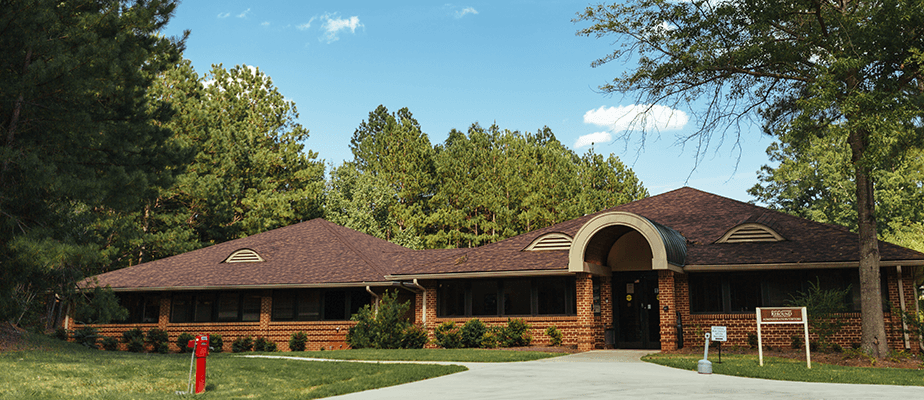Benzodiazepines are anti-anxiety agents prescribed by medical doctors as a way to treat conditions such as anxiety, insomnia, alcohol withdrawal, and seizure management.
More About Benzos
Learn More About Benzos
Some of these prescription medications include clonazepam, Xanax, Ativan, and Valium, which all work by acting upon the benzodiazepine receptors located throughout the central nervous system of the body. These medications lower anxiety levels, increase relaxation of the muscles, and produce sedation.
Benzodiazepines usually act very quickly, which makes them ideal for people who are suffering from anxiety disorders as they effectively and quickly control anxiety symptoms. Most people who are prescribed benzodiazepines by their doctor do not go onto abuse these medications. However, certain people can become addicted to the rapid onset and feelings of relaxation brought about by the benzos. Even though benzos are one of the most commonly prescribed medications, with chronic use they have a high potential for abuse. Misuse or abuse of benzodiazepines is defined as using these medications in a recreational fashion for the purpose of getting high and is a growing problem in the U.S. and worldwide. Rarely are benzos listed as the primary drug of choice for addicts; rather these medications are combined with psychoactive substance to augment the effects of other drugs or reduce unpleasant side effects.
Statistics
Statistics on Benzo Abuse & Addiction
At any given time in the United States, 11% to 15% of the adult population has used benzodiazepines one or more times during the year prior; only 1% to 2% have taken benzos daily longer than 12 months. Benzodiazepine abuse seldom occurs alone, with approximately 80% of those who abuse benzos using another substance (most commonly opioids) at the same time.
What Causes Benzo Use?
Learn About the Causes and Risk Factors for Benzo Addiction
Addiction to benzos is not likely the result of a single risk factor, but is a disease triggered by numerous genetic, physical, environmental, and risk factors working together. The most common causes and risk factors for benzodiazepine abuse include:
Genetic: It has been long established that addiction is related to genetics. People who have a first-degree relative who has struggled with addiction are more likely to develop an addiction later in life.
Physical: People who are struggling with certain types of mental and health-related disorders such as anxiety disorders or seizures are more likely to develop an addiction to certain substances as a way of controlling the side effects of these disorders.
Environmental: Certain environmental factors may lead to the development of abuse and addiction. The most common environmental influences for benzo abuse and addiction include low socioeconomic status, experimenting with drugs or alcohol at a younger age, and having friends or family who abuse benzos.
Risk Factors:
- Being female
- Other substance abuse
- Unemployment
- Peer pressure
- Elderly age
Signs of Benzo Addiction
Signs and Symptoms of Benzo Addiction
The symptoms and signs of abuse and addiction to benzodiazepines will vary among individuals based upon genetic makeup, length of abuse, frequency of use, dosage administered, and addiction to other types of substances.
The most common symptoms of benzodiazepine abuse include:
Behavioral Symptoms:
- Drug-seeking behaviors
- Forging prescriptions
- Increasing desire to be left alone
- Doctor shopping, or visiting a number of doctors to obtain more prescriptions
- Benzodiazepines taken in larger doses than intended, for longer time than intended
- Inability to meet expectations and responsibilities at work, school, or home
Physical Symptoms:
- Difficulties with motor coordination
- Sexual dysfunction
- Increased confusion
- Slowed thinking
- Slowed, diminished reaction time
- Muscle weakness
- Vertigo
- Increased respiratory infections
- Physical dependence
- Diplopia
- Ataxia
- Headaches
- Changes in eating and sleeping patterns
Cognitive Symptoms:
- Memory impairment
- Decreased verbal learning
- Difficulties with visuo-motor and visuo-conceptual perceptions
- Anterograde amnesia
- Cravings for the drug
- Impaired concentration
Psychosocial Symptoms:
- Worsening of mental health state
- Worsening of physical health
- Depersonalization
- Increased anxiety
- Paradoxical excitement, irritability, and hostility
- Depression
- Clouded emotional functioning
- Mood swings
Effects of Benzos
The Effects of Benzo Addiction
Long-term use and abuse of benzodiazepines can lead to a multitude of unpleasant effects, which are correlated with multiple drug abuse, length of abuse, frequency of use, and individual genetic makeup. The most common effects of chronic, untreated benzodiazepine abuse include:
- Loss of job
- Loss of home
- Forced homelessness
- Addiction
- Other substance abuse
- Deterioration of mental and physical health
- Physical and psychological dependence
- Drug-seeking behaviors
- Overreliance on benzos to reduce unpleasant, overpowering emotions
- Accidental overdose
- Self-harm
- Suicidal thoughts and behaviors
Withdrawal & Overdose
Learn What Happens During Benzo Withdrawal & Overdose
Becoming physical dependent upon benzos can lead to serious withdrawal symptoms when the drug use is abruptly stopped. It is important that withdrawal from benzodiazepines be performed under the guidance of a trained medical and psychiatric staff who are able to safely and effectively detox an individual. Withdrawal symptoms usually are noted within four hours after the last dose and may last days or weeks.
Symptoms of Benzodiazepine Withdrawal Syndrome
- Psychosis
- Hallucinations
- Confusion
- Delirium
- Seizures
- Status epileptics
- Flu-like aches and pains
- Restlessness
- Derealization
- Suicidal ideations
Symptoms of Benzodiazepine Overdose:
At normal doses, benzodiazepines are very effective at helping individual relieve symptoms of anxiety and insomnia. However, when taken in other ways than prescribed or combined with other drugs, benzodiazepines can be very dangerous. Some symptoms of benzodiazepine overdose include:
- Weakness
- Poor judgment and decision making abilities
- Slurred speech
- Drowsiness and sedation
- Confusion
- Dizziness
- Blurred vision
- Decreased coordination
- Coma
- Death from respiratory depression and arrest
Co-Occurring Disorders
Benzo Addiction and Co-Occurring Disorders
In most cases benzodiazepine abuse does not occur without the presence of at least one additional mental disorder. The most common co-occurring disorders include:
- Depressive disorders
- Other substance abuse
- Alcoholism
- Anxiety disorders
- Bipolar disorder
- Schizophrenia


















